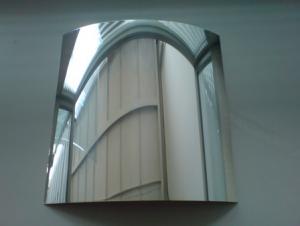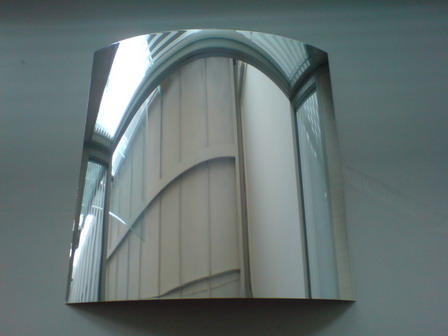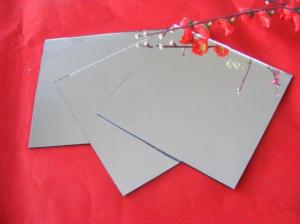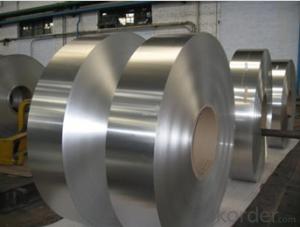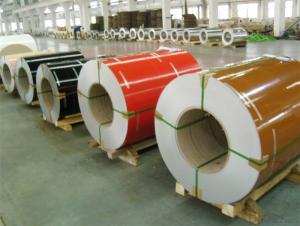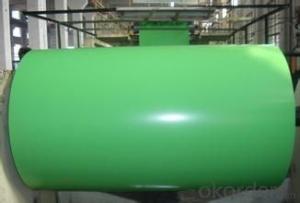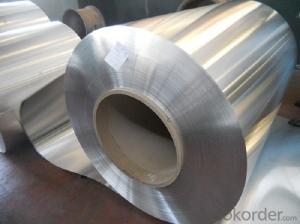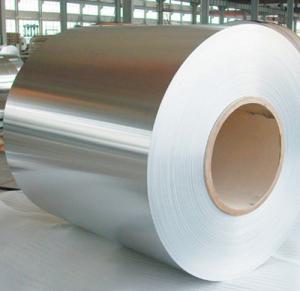All Aluminum Coil - Mirror Aluminum Coil
- Loading Port:
- China Main Port
- Payment Terms:
- TT OR LC
- Min Order Qty:
- -
- Supply Capability:
- -
OKorder Service Pledge
OKorder Financial Service
You Might Also Like
Packaging & Delivery
| Packaging Detail: | Standard Export Packaging or According to Customers' Requirements |
| Delivery Detail: | 30 days |
Specifications
Aluminum mirror sheet
1.Provide all kinds of aluminum mirror sheet
2.High quality
3.Reasonable prices
4.Great services
We provide all kinds of aluminum mirror plate!
We can supply ALplate/coil/foil of more than 10 alloy bands including 1xxx, 3xxx, 5xxx, 6xxx and 8xxx
series. The main products include aluminum sheet, coil, foil, air-container foil, cable foil, electronic capacitor foil, blister
foil, flexible packaging foil, CTP stock, litho stock, cap stock, tread plate, embossed coil, mirror panels, cans cover
materials, aerospace aluminum, mold aluminum materials, etc. at the same time, we process a variety of products
according to requirements of different customers.
- Q: What is virgin aluminum? I can't find anything about it, is it just another word for aluminum? Is there a difference?
- virgin aluminum is, aluminum that has not been printed on, mixed with other metals etc. It is simply a more pure form of aluminum and will net more upon resale to a junkman
- Q: How to calculate the length of aluminum sheet with the thickness known?
- Thickness*width*length=weight/density, length=weight/(density*thickness*width). Ps: Keep unit the same.
- Q: What are the advantages of using aluminum coils in various industries?
- There are several advantages of using aluminum coils in various industries. Firstly, aluminum is a lightweight material, which makes it easier to handle and transport. This also reduces the overall weight of products, leading to improved fuel efficiency. Secondly, aluminum coils have excellent corrosion resistance, making them ideal for applications in industries such as construction and automotive. Additionally, aluminum is a highly conductive material, enabling efficient heat transfer, which is beneficial in industries like HVAC and refrigeration. Lastly, aluminum is recyclable, contributing to sustainability efforts and reducing environmental impact. Overall, the use of aluminum coils offers numerous benefits in terms of weight, corrosion resistance, conductivity, and sustainability.
- Q: Suppose a cube of aluminum which is 1.00 cm on a side accumulates a net charge of +1.50 pC.(a) What percentage of the electrons originally in the cube was removed?(b) By what percentage has the mass of the cube decreased because of this removal?So for a you need to find total number of electrons removed (which gives it the +1.5 pC charge), and divide that by the number of total electrons in Aluminum right? 13 electrons in Aluminum..and i really don't know much else on this. I've been searching the internet for hours man
- One approach to this can use the density of aluminum to find the mass of the1 cm? block. The density of aluminum is 2.70-g/cm? so your cube has a mas of 2.70-g. The number of aluminum atoms in this block is: 2.7-g Al x (1 mol Al / 27.0-g Al) x (6.023 X 10?? atoms Al / 1 mol Al) = 6.023 x 10?? atoms Al. Each Al, as you pointed out, contains 13 electrons so we have 6.023 x 10?? atoms Al x 13 electron/atom = 7.83 x 10?? electrons. 1 x 10?? pC = 1 C and 1 C = 6.24 x 10?? electrons=== 1.5 pC x (1C / 1 x 10?? pC) x ( 6.24 x 10?? electrons / 1 C) = 9.36 x 10? electrons a.) % removed = 9.36 x 10? / 7.83 x 10?? x 100% = 1.2 x 10??? % b.) Each electron has a mass of 9.11 x 10???-g , so the total mass removed =9.11 x 10???-g/elec x 9.36 x 10? electrons = 8.53 x 10???-g. Thus the % decrease is (8.53 x 10???-g/ 2.7-g) x 100% = 3.16 x 10??? %
- Q: What is the maximum coil weight that can be produced?
- Several factors, including the type of material being coiled, the size and capacity of the coiling equipment, and the strength and durability of the coil itself, determine the maximum weight of a coil that can be produced. Generally, the maximum weight of a coil can vary from a few pounds to several tons. However, it is important to consider that exceeding the recommended maximum weight of a coil can result in safety hazards, equipment damage, and compromise the quality and integrity of the coil. Therefore, it is crucial to refer to the manufacturer's guidelines and specifications to ascertain the maximum weight of a coil that can be safely and effectively produced for a specific application.
- Q: What are the common sizes of aluminum coils available?
- The common sizes of aluminum coils available vary depending on the specific application and industry. However, some standard sizes include widths ranging from 36 inches (91 cm) to 72 inches (183 cm) and thicknesses between 0.019 inches (0.048 cm) to 0.125 inches (0.318 cm). These sizes are commonly used in industries such as construction, automotive, and manufacturing.
- Q: How does the alloy composition affect the properties of aluminum coils?
- The properties of aluminum coils are significantly influenced by their alloy composition. To enhance specific characteristics, aluminum is often combined with elements like copper, manganese, magnesium, and zinc. The strength of aluminum coils is a key property that is impacted by the alloy composition. Copper and zinc alloys, such as the popular 6061 or 7075 aluminum alloys, are renowned for their high strength, making them suitable for structural purposes. Conversely, manganese and magnesium alloys, like the 3003 or 5052 aluminum alloys, offer improved formability and are commonly used in the construction of automotive components or packaging materials. Corrosion resistance is also affected by the alloy composition of aluminum coils. For example, the addition of magnesium in alloys like 5052 or 5083 enhances their resistance to corrosion in marine environments, making them ideal for boat building or other marine applications. On the other hand, copper alloys possess excellent resistance to atmospheric corrosion and are frequently utilized in outdoor structures or architectural applications. The thermal conductivity of aluminum coils is another crucial property impacted by the alloy composition. Copper alloys exhibit high thermal conductivity, making them efficient for heat transfer applications such as heat exchangers or radiators. Aluminum-magnesium alloys, like 3003 or 3004, have lower thermal conductivity, making them suitable for applications where heat dissipation is desired, such as heat sinks in electronic devices. Additionally, the alloy composition can influence the electrical conductivity of aluminum coils. Copper alloys, with their high electrical conductivity, are commonly used in electrical wiring and conductors. However, aluminum-magnesium alloys, despite having lower electrical conductivity than copper, are still widely employed in electrical transmission lines and overhead power cables due to their lightweight nature. In conclusion, the alloy composition of aluminum coils plays a crucial role in determining their properties. It affects their strength, corrosion resistance, thermal conductivity, and electrical conductivity, allowing them to be customized for specific applications.
- Q: How are aluminum coils used in the construction industry?
- Aluminum coils are widely used in the construction industry due to their numerous beneficial properties. These coils are primarily employed in the fabrication of various building components, such as roofs, facades, gutters, and cladding systems. One of the main advantages of using aluminum coils in construction is their lightweight nature. Aluminum is significantly lighter than other commonly used metals like steel, making it easier to handle and install. This lightweight property also reduces the load on the building structure, allowing for more flexibility in design and minimizing the overall construction costs. Furthermore, aluminum coils offer exceptional corrosion resistance. Aluminum naturally forms a protective oxide layer on its surface, which prevents it from rusting or deteriorating when exposed to moisture or harsh environmental conditions. This corrosion resistance ensures the longevity and durability of the building components, reducing maintenance and replacement costs in the long run. Aluminum coils are also highly malleable and can be easily formed into various shapes and sizes. This versatility allows architects and engineers to create innovative and aesthetically pleasing designs. Aluminum coils can be bent, folded, or molded to fit any architectural requirement, enabling the construction of unique and visually appealing structures. In addition, aluminum is an excellent conductor of heat and electricity. This property makes aluminum coils ideal for applications that require efficient thermal or electrical conductivity. For example, aluminum coils are often used in HVAC systems to transfer heat or in electrical wiring to ensure optimal performance. Moreover, aluminum is a sustainable and environmentally friendly material. It is 100% recyclable without losing its properties, making it a perfect choice for sustainable construction practices. The recyclability of aluminum coils reduces waste generation and conserves natural resources, contributing to a greener and more sustainable construction industry. In conclusion, aluminum coils are extensively used in the construction industry due to their lightweight nature, corrosion resistance, malleability, efficient conductivity, and sustainability. These coils facilitate the construction of durable, aesthetically pleasing, and energy-efficient buildings while reducing costs and environmental impact.
- Q: Can aluminum coils be customized to specific thicknesses and widths?
- Yes, aluminum coils can be customized to specific thicknesses and widths.
- Q: Can aluminum coils be used for heat sinks?
- Yes, aluminum coils can be used for heat sinks. Aluminum is a popular choice for heat sinks due to its excellent thermal conductivity properties. Heat sinks are designed to dissipate heat generated by electronic components, such as processors or power transistors, to prevent overheating and ensure optimal performance. Aluminum coils can effectively transfer heat away from the heat source and distribute it over a larger surface area, allowing for efficient heat dissipation. Additionally, aluminum is lightweight, corrosion-resistant, and cost-effective, making it a suitable material for heat sink applications.
Send your message to us
All Aluminum Coil - Mirror Aluminum Coil
- Loading Port:
- China Main Port
- Payment Terms:
- TT OR LC
- Min Order Qty:
- -
- Supply Capability:
- -
OKorder Service Pledge
OKorder Financial Service
Similar products
Hot products
Hot Searches
Related keywords
